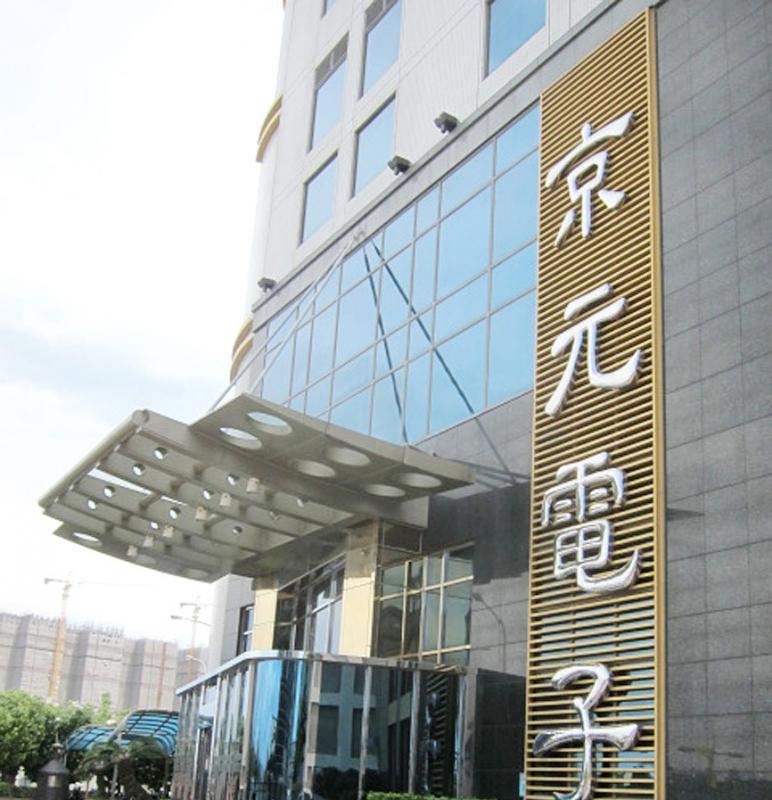Analysts are positive on IC testing service provider King Yuan Electronics Co’s (京元電子) outlook due to its customers’ commitment to communication chips and complementary metal-oxide-semiconductor (CMOS) image sensors.
While King Yuan’s revenue growth is likely to be affected by a loss of orders from China-based Hisilicon Technologies Co (海思半導體) due to US trade sanctions, orders from MediaTek Inc (聯發科) and others should fill the void left by Huawei Technologies Co’s (華為) chip division, Yuanta Securities Investment Consulting Co (元大投顧) said in a note last week.
King Yuan also counts Qualcomm Inc, Xilinx Inc and Nvidia Corp among its customers.

Photo: Hung Yu-fang, Taipei Times
The company had been expanding capacity significantly for HiSilicon over the past two years, with 30 to 35 percent of its capital expenditures spent to meet the Chinese customer’s testing demand, Yuanta said.
“Although we estimate a revenue gap of 15 percent next year on no Hisilicon contribution from the fourth quarter of this year, we still expect relatively flat growth in sales next year, thanks to strong demand for MediaTek’s 5G system-on-chip and power management ICs, as well as other customers’ graphics processing units, field-programmable gate arrays, CMOS image sensors and automotive-related chips,” Yuanta said.
With capacity adjustment from this quarter, King Yuan’s utilization rate and gross margin are to improve next year on the back of strong demand from customers, Yuanta added.
King Yuan shares closed 2.05 percent higher at NT$34.9 in Taipei on Friday, hitting its highest since Aug. 18. Year to date, shares have fallen about 7 percent.
“We believe this is due to expectations on easing China-US tensions after the US presidential election outcome and Huawei’s impact has been well digested,” Yuanta said.
King Yuan reported cumulative revenue of NT$24.26 billion (US$842.04 million) in the first 10 months of the year, up 16.83 percent from NT$20.76 billion a year earlier.
The company’s net profit for the first three quarters was NT$2.94 billion, up from NT$2.03 billion in the same period last year, or earnings per share of NT$2.41. Its gross margin reached 28.94 percent over the period.
The company’s revenue and gross margin for this quarter would continue to be pressured by a product mix adjustment and the New Taiwan dollar’s appreciation, but its business momentum is expected to resume growth next quarter at the earliest, analysts said.

Semiconductor shares in China surged yesterday after Reuters reported the US had ordered chipmaking giant Taiwan Semiconductor Manufacturing Co (TSMC, 台積電) to halt shipments of advanced chips to Chinese customers, which investors believe could accelerate Beijing’s self-reliance efforts. TSMC yesterday started to suspend shipments of certain sophisticated chips to some Chinese clients after receiving a letter from the US Department of Commerce imposing export restrictions on those products, Reuters reported on Sunday, citing an unnamed source. The US imposed export restrictions on TSMC’s 7-nanometer or more advanced designs, Reuters reported. Investors figured that would encourage authorities to support China’s industry and bought shares

FLEXIBLE: Taiwan can develop its own ground station equipment, and has highly competitive manufacturers and suppliers with diversified production, the MOEA said The Ministry of Economic Affairs (MOEA) yesterday disputed reports that suppliers to US-based Space Exploration Technologies Corp (SpaceX) had been asked to move production out of Taiwan. Reuters had reported on Tuesday last week that Elon Musk-owned SpaceX had asked their manufacturers to produce outside of Taiwan given geopolitical risks and that at least one Taiwanese supplier had been pushed to relocate production to Vietnam. SpaceX’s requests place a renewed focus on the contentious relationship Musk has had with Taiwan, especially after he said last year that Taiwan is an “integral part” of China, sparking sharp criticism from Taiwanese authorities. The ministry said

US President Joe Biden’s administration is racing to complete CHIPS and Science Act agreements with companies such as Intel Corp and Samsung Electronics Co, aiming to shore up one of its signature initiatives before US president-elect Donald Trump enters the White House. The US Department of Commerce has allocated more than 90 percent of the US$39 billion in grants under the act, a landmark law enacted in 2022 designed to rebuild the domestic chip industry. However, the agency has only announced one binding agreement so far. The next two months would prove critical for more than 20 companies still in the process

CHANGING JAPAN: Nvidia-powered AI services over cellular networks ‘will result in an artificial intelligence grid that runs across Japan,’ Nvidia’s Jensen Huang said Softbank Group Corp would be the first to build a supercomputer with chips using Nvidia Corp’s new Blackwell design, a demonstration of the Japanese company’s ambitions to catch up on artificial intelligence (AI). The group’s telecom unit, Softbank Corp, plans to build Japan’s most powerful AI supercomputer to support local services, it said. That computer would be based on Nvidia’s DGX B200 product, which combines computer processors with so-called AI accelerator chips. A follow-up effort will feature Grace Blackwell, a more advanced version, the company said. The announcement indicates that Softbank Group, which until early 2019 owned 4.9 percent of Nvidia, has secured a